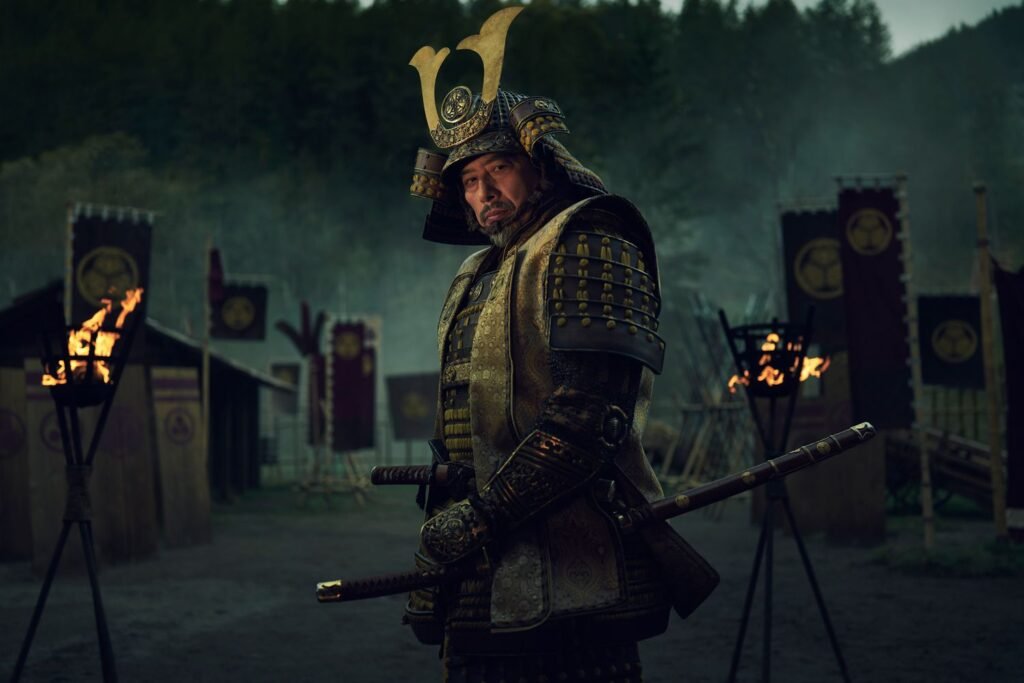
The original Shōgun was a rare phenomenon. More than 1,200 pages and 400,000 words in length, it proved stunningly successful, staying on the best-seller list for more than 30 weeks and selling millions of copies. The 1975 novel presented a fictionalized account of a real event: the arrival of an English pilot, William Adams, to Japan in 1600. Clavell reimagined the story, giving his hero (whom he renamed John Blackthorne), a starring role in the archipelago’s turbulent domestic politics in the months leading up to the climactic battle of Sekigahara, which brought more than a century of constant warfare to a final end.
Some historians criticized Shōgun as a text rife with errors and national stereotypes. But others like Henry Smith championed the book, arguing that it conveyed “more information about Japan to more people than all the combined writings of scholars, journalists, and novelists since the Pacific War.”
Five years after its publication and millions of dollars later, Shōgun made its way to television screens in the form of a five-episode miniseries. It, too, was a huge hit, captivating a massive audience estimated at more than 120 million people. Even so, many fans of the novel grumbled about how it flipped the story by rendering Japan an alien, unintelligible place where Japanese dialogue was left untranslated and unsubtitled. For those historians who had defended the book, the miniseries left a bitter taste in their mouths.
The imminent premiere of FX’s adaptation raises a key question. What kind of Shōgun will we see? All the clues suggest a break from the 1980 miniseries and a return to what made the book so special.
The backstory to Shōgun is as compelling as the book itself. It starts in 1942 when Japanese forces captured Clavell, a young officer in the Royal Artillery. He ended up in Changi, the infamous Japanese prisoner of war camp in Singapore. Changi became the formative experience of Clavell’s life. It was, he explained, “my university instead of my prison.”
It left a deep imprint. For years, Clavell carried a can of sardines with him while fighting an impulse to rummage through trash for food. And it provided the subject material for his first novel, King Rat, which presented a semi-fictionalized account of his experience as a prisoner of war.
Strikingly, years of captivity left Clavell with no hatred. To the contrary, it instilled a deep and sustained admiration for Japan and its people. When it came to Shōgun, Clavell wrote what he described as a “passionately pro-Japanese” book.
This perspective wasn’t evident to readers early in the book. In fact, the novel started with a highly negative depiction that showed the samurai whom Blackthorne initially encountered as brutal and unfeeling warriors who relished torture and delighted in suffering. But as the story unfolded, Clavell gradually steered his readers in a different direction as Blackthorne came first to respect and then to admire Japan as in many ways superior to Europe and the home he had left behind.
What made Clavell’s novel so compelling was the fact that it was really two intertwined stories. One, which might be called The Pilot, told the story of the “white samurai,” in this case a European man, Blackthorne, who became a true warrior while falling in love with a Japanese woman (Mariko Toda) and transforming Japan in the process. The Pilot presented a straightforward account that placed Blackthorne at the heroic center of the action (decades later The Last Samurai did something similar with Tom Cruise’s character, Nathan Algren).
Shogun release date: Where to watch new series?

Shōgun is releasing on TV and online platform. The ten-episode series is premiering on FX Network. The film will make streaming debut on Hulu OTT platform.
First two episodes will release on 10 pm (PT) on February 27, 2024. Remaining episodes will premier every Tuesday,
Meanwhile, Adam Sandler is Jakob Procházka, an astronaut on a solo mission to the edge of the solar system in the sci-fi drama “Spaceman,” debuting on Netflix on Friday, March 1. Isabella Rossellini is his commanding officer, while Carey Mulligan plays the wife he left behind on earth. And Paul Dano voices an extraterrestrial spider named Hanuš. From director Johan Renck (who helmed all five episodes of HBO’s chilling “Chernobyl” series), the film is based on a 2017 novel “Spaceman of Bohemia.”
For families looking for something new, Peacock Kids has a DreamWorks sequel in “Megamind vs. the Doom Syndicate,” streaming Friday, March 1 with Keith Ferguson replacing Will Ferrell as the voice of the reformed villain.
The Criterion Channel also has an amusing new series (out Friday, March 1) devoted to Razzie Award recipients, including “Heaven’s Gate,” “Ishtar,” “Cocktail,” “Showgirls,” and “Gigli,” some of which have turned into beloved classics, and some of which haven’t. But that’s up to the viewer to decide if, in the case of Elaine May’s “Ishtar,” they’re still with Roger Ebert, who called it “a truly dreadful film, a lifeless, massive, lumbering exercise in failed comedy” or if they’re on the side of fans like Martin Scorsese and Quentin Tarantino.
Shogun Review: Epic,Violent And Gripping

The new FX mini-series “Shogun” is getting a lot of credit simply for not being “Shogun,” the 1980 NBC mini-series also adapted from James Clavell’s best-selling novel about the last days of feudal Japan. But the new show stands and falls on the same terms as the old show: its success as an epic costumed soap opera. You can correct for wooden acting, dated production values and Eurocentrism, but you can’t really correct for the basic nature of the material.
And on those terms, this “Shogun” — which premieres Tuesday on FX and Hulu with two of its 10 episodes — is perfectly successful. It is sumptuously produced, mostly well acted and not excessively sentimental or sensational. If its story seems to stop and start a bit, there are reasons for that, which become clear in a satisfying and moving ending; if there are major characters who don’t stand up to scrutiny, there are others who come alive and hold your interest. It may not live up to its hype, and it may leave you wondering why so much time (more than a decade) and money needed to be spent reanimating Clavell’s tale. But it delivers.
Created by the husband-and-wife team of Justin Marks and Rachel Kondo, the FX “Shogun” is still the story of an English navigator, John Blackthorne, who arrives in Japan at the turn of the 17th century and becomes embroiled — to a startling degree — in the political, cultural and romantic life of the country. (Blackthorne, like most of the significant characters, is loosely based on a historical figure.)
Kondo and Marks have recalibrated the narrative, however, moving Blackthorne’s point of view down in the mix and elevating the roles of many of the Japanese characters, particularly Toda Mariko, the noblewoman who becomes Blackthorne’s translator and love interest, and Yoshii Toranaga, the lord who both protects and manipulates him.

